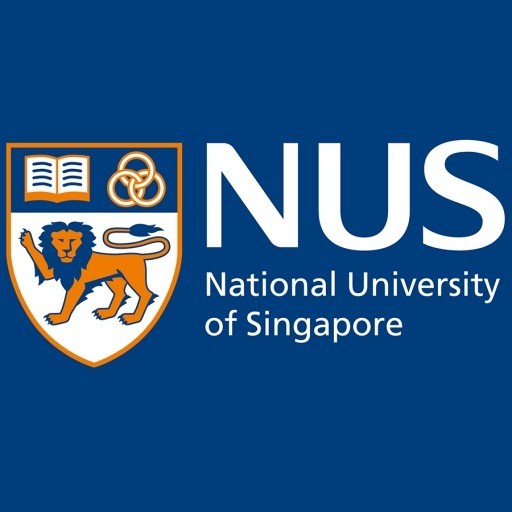Photos of university / #nus_singapore
The Bachelor of Computing at the National University of Singapore offers students a comprehensive and in-depth education in the field of computing, preparing them for diverse careers in technology and innovation. This rigorous undergraduate program combines core principles of computer science with practical applications, equipping graduates with the skills necessary to tackle complex problems in today’s digital world. Students will explore a wide range of topics including algorithms, programming, software engineering, data analysis, artificial intelligence, cybersecurity, and human-computer interaction. The curriculum is designed to foster analytical thinking, creativity, and problem-solving abilities, ensuring graduates are well-versed in both theoretical foundations and real-world applications.
Throughout their studies, students have the opportunity to engage in hands-on projects, collaborative work, and internship placements that provide valuable industry experience. The program emphasizes the importance of interdisciplinary learning and encourages students to innovate and develop solutions for societal challenges using computing technology. With modern labs, dedicated research centers, and close ties to industry partners, students receive comprehensive support and mentorship from faculty members who are leaders in their fields. The Bachelor of Computing also offers options for specialization, allowing students to focus on areas such as artificial intelligence, data science, cybersecurity, or software engineering, depending on their career interests.
The university's strong emphasis on research and innovation provides students with opportunities to participate in cutting-edge projects, attend conferences, and contribute to advancements in computing technology. Upon graduation, students are prepared to pursue careers in software development, data analysis, cybersecurity, research, or to continue their education through postgraduate studies. They will be part of a vibrant community of scholars and practitioners committed to advancing knowledge and creating impactful solutions. The Bachelor of Computing from the National University of Singapore embodies a commitment to excellence, innovation, and societal contribution, making it an ideal choice for aspiring computing professionals seeking a comprehensive and future-focused education.
Students are required to pass ten modules, with at least five modules selected from their specialisation (total of 40 modular credits).
The remaining five non-specialisation modules can be chosen from level 4000 to 6000 modules offered by the School of Computing.
Students are allowed a maximum of two level 4000 modules and two modules (must be at least level 5000) from other faculties.
Dissertation Option
Students in CS or IS specialisations will be allowed the flexibility of taking the dissertation option which is equivalent to four graduate level modules (16 modular credits). Students will need to complete six graduate level modules, with at least three modules from the area of specialisation (24 modular credits).
The dissertation option gives individual students the opportunity for independent study and research in the area of their selected specialisation. This will be carried out under the supervision of an academic staff, and the selection of the topic/area will be done in consultation with the supervisor in the area of expertise.
Infocomm Security (InfoSec) Specialisation
Students enrolled to the Infocomm Security specialisation from August 2015 intake onwards will complete the MComp programme by selecting one of the following structures:
Option 1
InfoSec specialisation students under this option are to complete six graduate level modules, with at least four modules from the InfoSec specialisation (24 modular credits). A maximum of one level 4000 module is allowed.
In addition, they will need to complete a project which culminates with a dissertation (16 modular credits).
Option 2
Students will need to complete eight graduate level modules, with at least four modules from the InfoSec specialisation (32 modular credits). A maximum of two level 4000 modules is allowed.
Students will also complete a one-semester long project (8 modular credits). Students can undertake an external company/agency-proposed InfoSec projects with a SoC faculty member’s involvement, or a project proposed solely by an SoC faculty member.
Students are allowed a maximum of two modules (at least level 5000 and above) from other faculties.
- At least a Bachelor's degree in Engineering or its equivalent.
- Payment of application fees (S$50)
- The page of your passport bearing the passport number
- Employment pass / work permit
- Documentary proof of change in name (if you had your name changed and your name in NRIC / Passport is not identical to the name printed on your degree scroll / certificate and university transcript)
- Polytechnic results and certificate (if applicable), or its equivalent
- Original official transcript, or its certified true copies,
- Financial statement indicating a balance of at least S$25,000 or its equivalent to show applicants’ ability to support themselves financially (i.e. estimated expenses of S$25,000 a year in Singapore) - only applicable to International applicants applying for full-time courses and who are not residing or not working in Singapore.
- TOEFL scoresheet indicating a min. score of 92 (internet-based test) or IELTS (Academic) result of 6.5
- Referee reports / recommendation letters
The Bachelor of Computing programme at the National University of Singapore offers a variety of financing options to support students throughout their studies. Tuition fees are structured according to the student’s nationality, with Singapore Citizens, Permanent Residents, and International students each paying different rates. For Singapore Citizens, the tuition fee is subsidized and further reduced through government schemes, while international students pay the unsubsidized tuition fee, which is higher. To assist students with these costs, the university provides an array of scholarships, bursaries, and financial aid schemes.
Scholarships are awarded based on academic excellence, leadership qualities, and potential contributions to the university community. Prominent among these are the NUS Scholarships, which often cover tuition fees fully or partially, and are offered to outstanding local and international students. Bursaries are available for students demonstrating financial need, providing cash support to help cover tuition and living expenses. Additionally, students can access various interest-free or low-interest study loans, offered through the university or in collaboration with external financial institutions, to facilitate tuition fee payments and other educational costs.
The university also encourages students to participate in work-study programmes and paid internships, which can help defray living expenses and reduce the financial burden. Students are advised to explore government support schemes such as the Students’ Loan Scheme and the Tuition Fee Loan, which can be combined with university financial aid to provide comprehensive assistance. Moreover, students can consider applying for external scholarships from industry partners, philanthropic organizations, and the Singapore government to maximize available resources.
International students who require financial assistance can access specific scholarship opportunities designed for non-residents, along with grants and financial aid tailored to their circumstances. The university also provides financial counseling and advisory services to help students plan their finances effectively, understand their funding options, and manage their repayment obligations post-graduation. By offering a robust and diverse range of financial support mechanisms, the National University of Singapore ensures that talented students can pursue their Computing education regardless of financial background.
The Bachelor of Computing (Honours) at the National University of Singapore is a comprehensive undergraduate programme that is designed to equip students with a strong foundation in computer science, software engineering, and information systems. The curriculum is carefully structured to balance theoretical knowledge with practical skills, enabling graduates to excel in various fields within the technology sector. Students have the opportunity to specialize in areas such as Artificial Intelligence, Data Science, Cybersecurity, Human-Computer Interaction, Software Engineering, and Computing Systems. The programme emphasizes hands-on learning through projects, internships, and collaborative work, fostering critical thinking, problem-solving, and innovative capabilities.
The university provides state-of-the-art facilities, labs, and research centres that support advanced research and learning. The curriculum also includes modules on computing principles, algorithms, programming languages, database systems, computer architecture, and software development methodologies. A significant component of the programme is the final-year project, which allows students to apply their technical skills to real-world problems, often in partnership with industry or research institutions.
Students are encouraged to participate in internships and industry attachments during their studies to gain practical experience and professional exposure. The programme also offers a range of electives, allowing students to pursue interdisciplinary interests and develop a well-rounded skill set. The university maintains strong ties with industry partners, providing ample opportunities for networking, mentorship, and employment after graduation.
Graduates of the Bachelor of Computing (Honours) programme are well-prepared for careers in software development, data analytics, cybersecurity, IT consultancy, research, and many other fields within the digital economy. They may also choose to further their education at the postgraduate level, engaging in research or professional studies. The programme’s rigorous academic environment, combined with practical opportunities, aims to produce innovative graduates capable of contributing to the advancement of technology and society.









